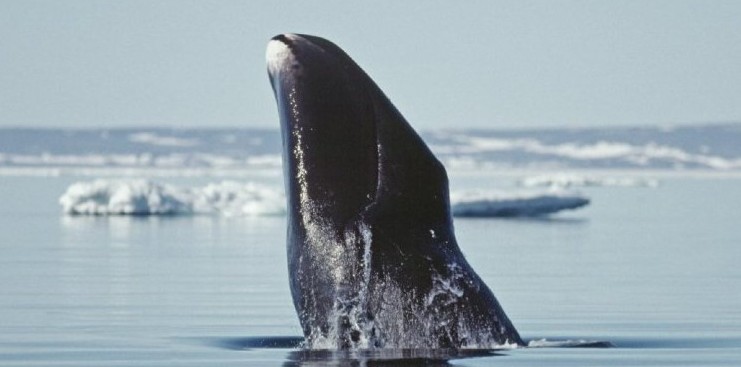The complete genome for the bowhead whale has been mapped and the results have been presented by University of Liverpool researchers. The researchers expect that the research help build an understanding of “tricks of biology” that the species–which lives up to 200 years with low incidence of age-related diseases–have developed to increase their lifespans.
“My view is that species evolved different ‘tricks’ to have a longer lifespan, and by discovering the ‘tricks’ used by the bowhead we may be able to apply those findings to humans in order to fight age-related diseases,” Senior author Dr. João Pedro de Magalhães, of the University of Liverpool, in the UK, said of the research.
“Our understanding of species’ differences in longevity is very poor, and thus our findings provide novel candidate genes for future studies.”
The bowhead genome is the first to be sequenced among large whales. The researchers included in the presentation of their findings the identification of key genetic differences from other mammals, including genes related to cell division, DNA repair, cancer and aging.
The new genome map carries hope that physiological adaptations related to the whale’s massive size will become understood, such as the relatively low metabolic rate possessed by the large mammals. The team identified one particular gene–UCP1, which plays a role in thermoregulation–that they suspect may be important in this regard.
Read more: “Tricks” of major puzzle of biology sought in longest lived mammal
The researchers remarked that the bowhead not only lives long, but lives disease-free until an age much more advanced than that at which humans frequently begin to become burdened by illnesses.
Magalhaes also noted that large whales have over 1000 times the number of cells humans have, yet the large mammals do not seem to suffer from increased cancer risks associated with the massive amount of cells. Magalhaes suspects that this points to natural mechanisms possessed by the whales genes that more effectively suppress cancer.
Next for the team is a project to breed mice to express some of the standout bowhead genes. They hope to find genes for longevity and disease resistance.
The report, “Insights into the evolution of longevity from the bowhead whale genome,” was authored by Dr. João Pedro de Magalhães and was published in the journal Cell Reports.
Information on the research can also be found at the team’s genome resource webpage.
